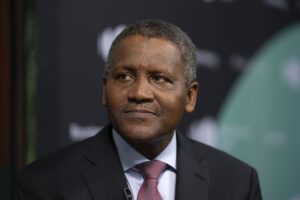PDP/APGA crises: Mixed reactions trail summon of six Chief Judges
.Ubani commends CJN over summon
…as Bewaji clarifies NJC, CJN roles over judges’ conduct
By Tobi Adetunji and Salami Uthman
The Chief Justice of Nigeria (CJN), Ibrahim Muhammad, has summoned Chief judge of six states for making conflicting court orders issued in their respective jurisprudences.
The summon by the CJN stemmed from the issuance of conflicting orders over the leadership crisis rocking the leading opposition, Peoples Democratic Party (PDP).
Earlier, the Chief Judge of these states had issued conflicting orders over issues bordering on the Chairmanship tussle of the PDP and the Gubernatorial candidate logjam of the All Progressives Grand Alliance (APGA) in Anambra state.
Those summoned by the CJN were the Chief judge of Rivers, Kebbi, Cross River, Anambra, Jigawa, and Imo states.
In the summon, made available to Nigerian NewsDirect, the CJN complained about the “huge embarrassment” caused by those who issued conflicting orders upon ex-parte applications by some political parties.
The affected judges were to first appear before the CJN, after which they would face the Nigerian Judicial Council (NJC) to explain what informed the issuance of the conflicting orders by courts of coordinate jurisdiction.
The summon read: “My attention has been drawn to media reports to the effect that some courts of coordinate jurisdiction were granting conflicting Exparte Orders on the same subject matter.
“It has become expedient for me to invite you for a detailed briefing on the development.”
However, Human Rights lawyer, Barrister Ubani Onyekachi in a phone call with Nigerian NewsDirect, said, “There has been a directive from the Chief Justice of Nigeria, that they should stop issuing exparte injunction anyhow, especially as it regards the political settings, but the instructions were not strictly adhered to.
“It’s bringing a lot of confusion in the system and painting the legal profession bad. I believe that the CJN felt order should be restored into the system, and that is what the CJN has done by calling to order the Chief Judge of each State.
He added that, “We are working towards 2023, but with this manner of granting injunction here and there, it may derail the Democratic System of the country. The call for the meeting is a good one and should be applauded.”
Also reacting, Barrister Bunmi Bewaji said, “It may be hasty to jump into any conclusion. They have been invited and I believe strongly that the news was not correct that Chief Justice of Nigeria invited chief judges for conflicting orders on PDP leadership.
“The invitation will be by the National Judicial Council (NJC) not by the Chief Justice of Nigeria because the Chief Justice of Nigeria is the chairman of NJC, I believe he must have invited them in his capacity as the chairman of NJC.
“Because as the CJN, he has no power over the Chief Judge of 9 States, and there is no relationship whatsoever between the two offices. He is the head of Federal Judiciary, while the judges, are also the head of the Judiciary in their respective states.
“On the so called conflicting judgement, it’s difficult to ascertain the credibility or otherwise, of any judgement.
“It all depends on the facts presented in the court of law. It is also important to note that most of this things are exparte orders, but not final judgment.
“To get an exparte order in the court, you need some fact, and the fact you presented in the court in A, someone else might go to Court B and present other sets of facts and get the so called conflicting judgements. But in the end, the court will still have the opportunity to look at the entire fact and make its final judgement.
“It is in stages, ranging from the exparte order, the Interlocutory order and the final judgment.
“I believe the meeting was called to protect the sanctity of Judiciary, and give credible direction. So, we should wait for the outcome of the meeting.”




